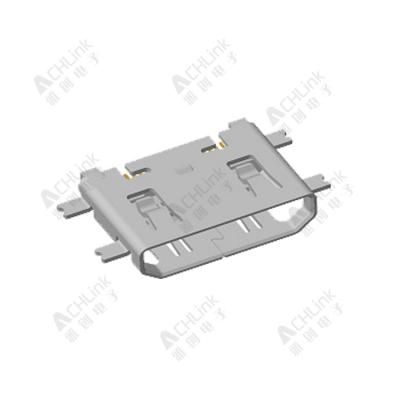After a long period of tussle-and-tussle negotiations, China and the United States have gone from tentative "lip service" to a solid list of tariff increases. In the Sino-US trade war and tariff policy, the United States is playing a dramatic role of killing one thousand enemies and losing eight hundred.
On July 6, 2018, the United States imposed a 25% tariff on about $34 billion of Chinese imports to the United States, covering semiconductor/component categories: LED, PCB, laser equipment, semiconductor equipment, capacitor resistance, transistors, thyristors, diodes, photosensitive devices, touch screens, etc. At the same time, China has also imposed tariffs on soybeans and other agricultural products, automobiles, aquatic products and other imports originating in the United States. The tariff rate is 25%, which does not involve semiconductors for the time being.
On August 23, 2018, the United States imposed a 25% tariff on the remaining $16 billion worth of goods. It involves a large number of semiconductor/component categories: including motors, processors and controllers, memory, amplifiers and other electronic integrated circuits, voltage and current regulators, antennas, fiber optic cables and their connectors, devices/components used to manufacture semiconductor devices or electronic devices, etc.
On September 18, 2018, the U.S. Trade Representative Office (USTR) announced a 10% tariff on imports of $200 billion of goods from China. The effective date is September 24, and the tariff rate will rise to 25% from January 1, 2019. Meanwhile, Trump issued a statement saying that if China took countermeasures, it would immediately adopt a third stage of sanctions, which would consider imposing tariffs on another $267 billion of goods.
Subsequently, the Ministry of Commerce issued a statement that "China has to simultaneously counter-act". The Tariff and Tax Commission of the State Council issued a public announcement, deciding to impose tariffs on 5207 imported goods originating in the United States from 12:01 on September 24, 2018. This measure involves about 60 billion US dollars in imported trade from the United States, with an additional 10% or 5% tariff, which will be implemented from 12:01 on September 24, 2018. If the US side insists on further raising the tariff rate, the Chinese side will respond accordingly and the relevant matters will be announced separately.
So far, the United States has imposed tariffs on $250 billion of goods, accounting for 49.5% of the total US imports from China of $505.6 billion in 2017. If the United States once again announces a 25% tariff on another $267 billion of goods from China, it will mean a
25% overall tariff increase on Chinese exports to the United States.
American businesses have suffered even more.
State Councilor and Foreign Minister Wang Yi has said that nearly 60% of China's exports to the United States are made by foreign companies, including American multinational companies.
Take chip manufacturing as an example, the supply chain of chip manufacturing is very complex. Many chip manufacturers assemble and test in China, and the value of this part of the work only accounts for 10% of the value of the chip. The design and manufacture of chips are of great value. But it is still unavoidable that tariffs will be imposed, and there are already some American companies that have had to deal with the new costs of tariff measures.
According to foreign media reports, Cree Inc., a North Carolina lighting manufacturer, has said that the new tariff will bring significant economic losses to the company. Cree's factory in Durham, North Carolina, produces light-emitting diode (LED) chips, which are then shipped to a factory in Huizhou, China, where they are assembled and packaged. Some of the packaged LED chips were shipped back to the United States for use in lighting products produced by Cree and its customers.
John Neuffer, president of the American Semiconductor Industry Association, also said that tariffs would do more harm to American companies than to Chinese ones, because most of the semiconductor products imported from China were produced by American companies.
Accelerating the Outflow of Manufacturing Industry in China
At present, due to the cost problems brought about by China's labor force, industrial land use and environmental protection policies, Chinese manufacturing enterprises are shifting to the surrounding countries such as Southeast Asia and returning to the United States. After the implementation of the new tariff policy, even many products using chips originating in the United States, South Korea, Taiwan and other places have been imposed tariffs, which will accelerate the outflow of Chinese manufacturing industry.
International companies such as Intel will avoid the risks of Sino-US trade through various strategies. Intel has six factories, three in the United States, one in Ireland, one in Israel and one in
China.
If Intel manufactures chips at factories in Oregon, Arizona or New Mexico, then sends them to China for low-level assembly, and then brings them back to the United States and places them in equipment made in the United States, they will be hit by tariffs. However, Intel also has assembly and testing centers in Costa Rica, Malaysia and Vietnam. Intel can avoid tariff shocks if it manufactures chips from factories outside China and sells them to American companies.
In fact, whether the United States imposes tariffs on Chinese goods or whether China imposes tariffs on American goods has been hit by new tariffs.
It's not just Chinese companies or the Chinese economy. In the context of globalization of economy and supply chain, the whole industry chain will pay for the new tariff policy, and ultimately every consumer will pay for it

vietnam Cable Factory is a company specializing in the development, design, manufacture and sale of USB 2.0 data lines, USB 3.0 data lines, Type C data lines, network lines, data lines and other connection lines. It has a complete and scientific quality management system, which has passed the certification of ISO 9001 international quality management system; National Consulting Hotline: 86-755-88210101-3, you can also click on the online consultation details. :

